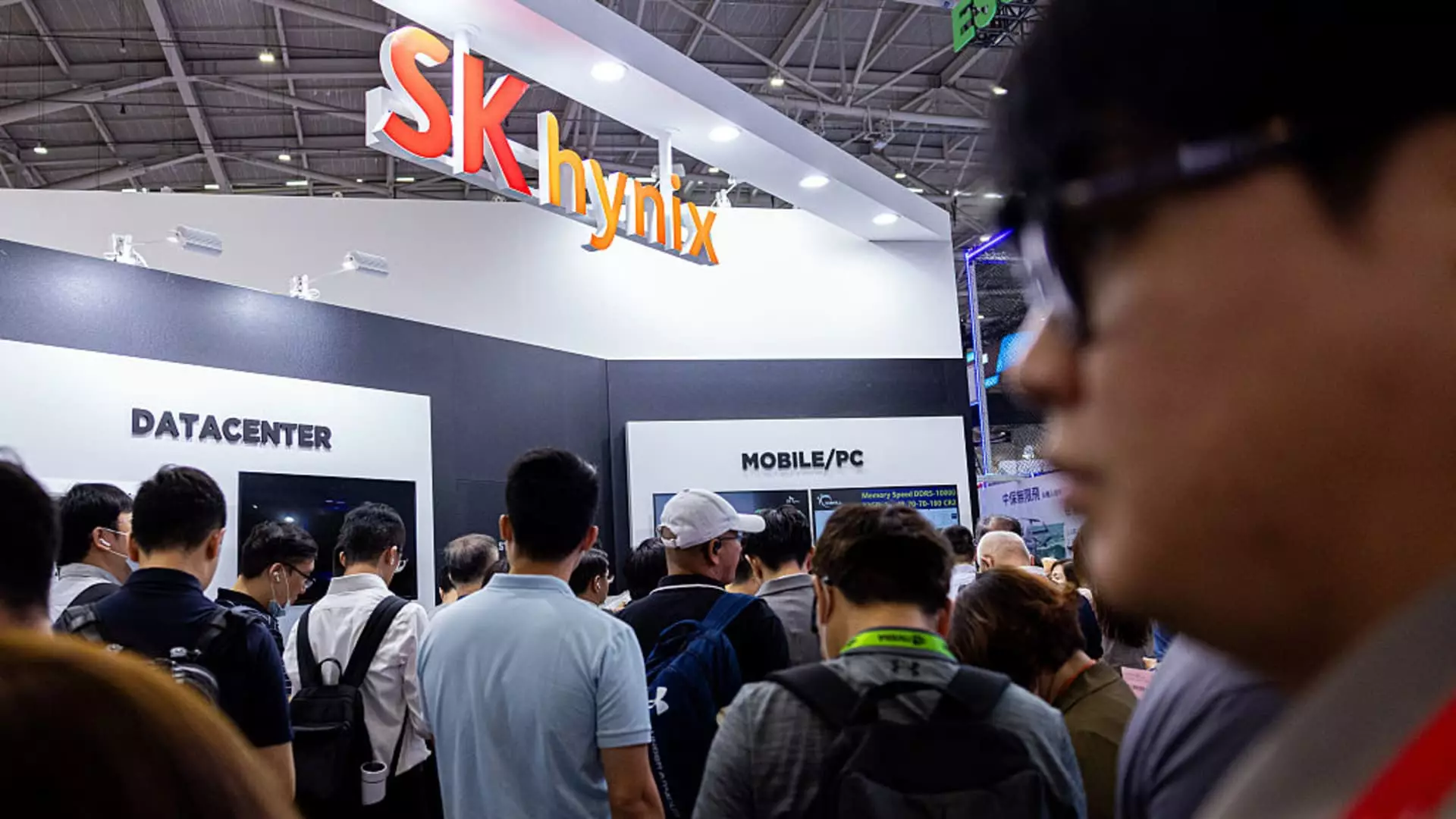In recent weeks, the geopolitical landscape has taken a noticeable turn toward protectionism, with consequential repercussions for global markets. The announcement by U.S. President Donald Trump of impending tariffs on semiconductors signals not merely a unilateral economic act but a broader retreat from multilateral cooperation. This move, cloaked in nationalist rhetoric, threatens to exacerbate existing tensions and destabilize an already fragile global economy.
The immediate fallout in Asian tech stocks elucidates a deeper vulnerability. Leading chip manufacturers such as Tokyo Electron, Renesas, SK Hynix, Samsung, and TSMC experienced notable declines, reflecting investor fears over supply chain disruptions and decreased global demand. These companies, cornerstones of high-tech innovation, are not simply market entities but vital nodes in the digital economy. Their declines serve as a warning: protectionist policies can severely impair technological progress and international collaboration, which are essential for sustaining innovation-driven growth.
President Trump’s explicit emphasis on “making semiconductors in the United States” reveals a strategic pivot that will likely escalate domestic manufacturing at the expense of global integration. Yet, this approach warrants skepticism. Historically, such policies have often resulted in increased costs, reduced efficiencies, and retaliatory measures from trading partners. By prioritizing national production over international cooperation, the U.S. risks marginalizing itself in the global innovation ecosystem, ultimately undermining its competitiveness in the long term.
Conversely, the markets’ reaction signals a broader apprehension—uncertainty about the future’s stability. While some policymakers may welcome the emphasis on self-sufficiency, the broader economic implications point toward fragmentation rather than resilience. The interconnected nature of global supply chains is not easily untangled, and attempts to insulate domestic industries often lead to unintended consequences, such as inflationary pressures and reduced consumer choice.
The Fragile Optimism in Economic Indicators Undermined by Political Drama
Amidst this protectionist wave, more positive economic indicators like Australia’s record-high stock levels and gains from major banks can appear as islands of stability. However, these are often short-lived sandcastles in an ocean of uncertainty. Market rallies, fueled by temporary optimism, are increasingly disconnected from the underlying geopolitical realities. As investors grapple with the prospect of increased tariffs, their confidence wanes, and volatility rises.
Indeed, US indices’ recent declines—despite promising economic data—highlight a market heavily influenced by political whims and unpredictable policy shifts. When tariffs are announced—their timing and scope still shrouded in secrecy—the ripple effects will likely extend beyond tech stocks, cascading into manufacturing, agriculture, and even consumer goods. This erosion of investor confidence underscores a fundamental problem: economic resilience cannot be built solely on protectionist policies that threaten to disturb long-standing global partnerships.
Furthermore, President Trump’s hints at possible tariffs on pharmaceuticals and other sectors amplify doubts about the United States’ commitment to maintaining a balanced and fair trade environment. The mention of tariffs reaching up to 250% introduces a level of economic terrorism that could trigger retaliatory measures from trading partners, spiraling into a trade war that stifles growth and innovation.
Protectionism as a Double-Edged Sword for the Future
Decisions driven by nationalist protectionism may offer short-term political gains, but they accumulate long-term risks. The promise of domestic manufacturing, while appealing to some voters, neglects the structural realities of a globally interconnected economy. High tariffs and barriers inhibit technological exchange, escalate costs, and ultimately hinder the very industries they aim to bolster.
This inward-looking stance perpetuates a dangerous cycle: economic nationalism breeds mistrust among allies, prompting further barriers and retaliations. Such a climate stifles diplomatic dialogue and diminishes the chances for mutually beneficial agreements that could provide stability amidst economic volatility.
From a liberal-centered perspective, embracing open markets and international cooperation offers the best pathway toward sustained innovation, equitable growth, and geopolitical stability. While legitimate concerns about domestic industry support are valid, they should not come at the expense of long-term global collaboration—an essential ingredient for tackling complex challenges like climate change, technological development, and equitable economic growth.
In the end, the current trajectory of escalating tariffs and economic nationalism threatens to undo the delicate equilibrium that has sustained global prosperity for decades. It is a perilous gamble that the global community can ill afford, risking the very foundations of a resilient, innovative, and inclusive economy.


Leave a Reply